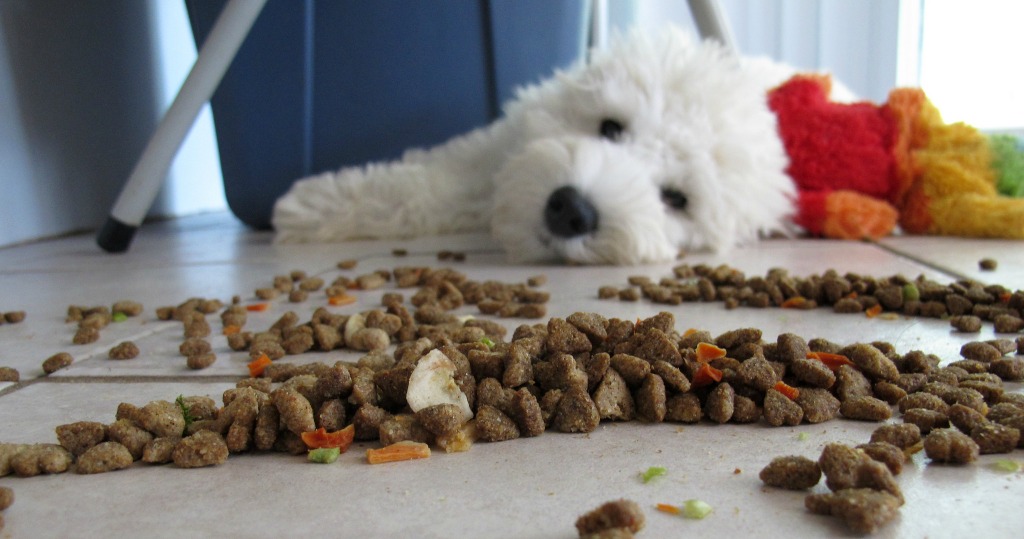
Dry pet food is linked with salmonella outbreaks in humans, according to a UAlberta grad student's analysis of scientific studies and Health Canada statistics. (Photo: BuzzFarmers via Flickr, CC BY 2.0)
When doling out dinner for their fur kids, pet parents need to be careful that they don't dish up a case of food poisoning for themselves.
Indeed, University of Alberta graduate student Bushra Alam was surprised to discover dry kibble and treats for both dogs and cats have been associated with salmonella outbreaks in humans after reviewing several scientific studies and government reports as part of a class project.
"I don't think people are aware of the fact that you can also get salmonella from your cat's or dog's food, and from a public health perspective, we should be more aware of this," said Alam, owner of a pet cat.
Her findings, drawn from several published scientific studies and from Health Canada statistics, showed that more than 150 outbreaks in humans were recorded in Canada and the United States between 1999 and 2013, from handling dry pig's ears and beef patty dog treats, dog and cat kibble and chicken jerky treats. In addition, Canadian recalls of pet food suspected to be contaminated by salmonella occurred as late as 2015 when raw dog food was recalled.
Coated with a layer of poultry-based liquid to make it tasty for cats and dogs, dry kibble poses a risk if the fat in the liquid applied after the sterilization process contains salmonella, she said. The same goes for dried treats and raw pet food.
Convenient and easy to pour into Fido's bowl with the flick of a wrist, dry food doesn't arouse our suspicions the way canned food might, Alam noted.
"Pet foods are so well packaged, we tend to think it is safe, so we are not very careful about it."
There's also an all-in-the-family mentality that can lead to relaxed hygiene, she said.
"We tend to treat our cats and dogs as family members. I don't think every time you pet them you're going to wash your hands."
Exotic pets like snakes and lizards carry salmonella in their intestinal tracts and can intermittently shed the bacteria. Infected dogs and cats can spread it through their feces for up to six weeks.
At feeding time, Alam advises people stick to the golden rule of sanitation when handling pet food: wash your hands well with soap and water. As well, people should find a spot in the house for pet bowls that doesn't compromise food safety.
"There should be a designated area where you feed your pets, and it should be outside the kitchen."